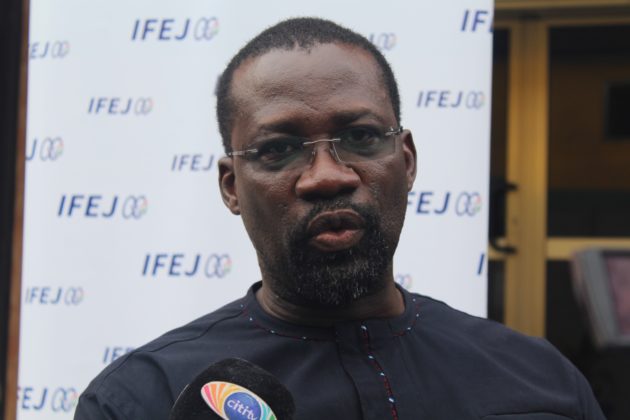The newly appointed Managing Director of Bulk Oil Storage & Transportation Company Limited (BOST), Edward Nii Obodai, has called on government to approve the implementation of the adjusted BOST margin levy of three Ghana pesewas (GH¢0.03) per litre to six pesewas (GH¢0.06) to ensure efficient running of the organization.
“The current BOST margin of GH¢0.03, was implemented in 2011 and has not been adjusted since then even though parliament has ratified that it should be increased to GH¢0.06 in 2017. Meanwhile the company needs more revenue to bring in more products, build infrastructure and trade, among others,” he said in an interview with the B&FT.
Mr. Obodai, expressed among others that he is dedicated to transforming BOST into a dividend paying organization but to be able to do that requires heavy investment in infrastructure and to generate the needed revenue to do that requires that the BOST margin be increased.
“Our vision is to be the best in storage and transportation in terms of revenue market share which means that we are to have the best storage and transportation infrastructure to transport the products throughout the country cost effectively.
“We are also going to be aggressively export-oriented because the kind of product we want to bring to the country, the market capacity of Ghana cannot take all which means that we have to leverage on our asset in Bolgatanga positioned for export to transport products to the neighboring land lock countries such as Burkina Faso, Mali, Benin, Niger among others,” he said.
He added that the motive is to be able to generate enough Internally Generated Fund (IGF) to enable BOST to pay dividend to the shareholder which is the country as well as promote the provision of affordable energy to reduce the cost of electricity in the near future.
BOST is currently not able to fulfill its mandate due to its inability to bring in petroleum products at a competitive price that will enable it to control and influence the market price.
The company has 51 petroleum storage tanks across the country, out of which 15 have been decommissioned as a result of malfunctioning components and also 86 kilometers (km) out of its 361km of pipeline infrastructure is inactive.
Furthermore, Mr. Obodai indicated that to turn BOST around requires an investment of about US$150million out of which US$65million will be invested into infrastructure only. The return in infrastructure investment only he said will lead to doubling of depot revenue from US$10.2million to US$20.4million, increase in pipeline revenue and barge revenue, as well as increase in trading revenue from US$55million to US$785million.
The critical role BOST plays as a national security asset and the immense revenue that the state will accrue when it is operating at full capacity requires that the new margin be implemented and also restructured to be able to adjust with inflation automatically to ensure that the value is maintain. This is because pegging the current GH¢0.03 BOST margin with inflation since 2011 when it was implemented means that the value of it stands at GH¢0.01.
Source: B&FT Online





